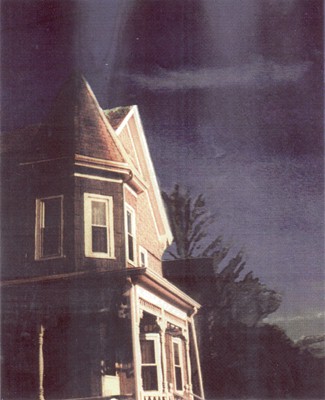All Nonfiction
- Bullying
- Books
- Academic
- Author Interviews
- Celebrity interviews
- College Articles
- College Essays
- Educator of the Year
- Heroes
- Interviews
- Memoir
- Personal Experience
- Sports
- Travel & Culture
All Opinions
- Bullying
- Current Events / Politics
- Discrimination
- Drugs / Alcohol / Smoking
- Entertainment / Celebrities
- Environment
- Love / Relationships
- Movies / Music / TV
- Pop Culture / Trends
- School / College
- Social Issues / Civics
- Spirituality / Religion
- Sports / Hobbies
All Hot Topics
- Bullying
- Community Service
- Environment
- Health
- Letters to the Editor
- Pride & Prejudice
- What Matters
- Back
Summer Guide
- Program Links
- Program Reviews
- Back
College Guide
- College Links
- College Reviews
- College Essays
- College Articles
- Back
Winchester MAG
“Winchester” dispels the notion that the past has no relevance in modern times. In an era where there’s a new mass shooting every time one turns on the TV, the film is remarkably poignant, posing serious moral questions that aren’t easily answered. Its timeliness, along with the actors’ stunning performances, are the film’s biggest assets. They’re almost enough to convince one to overlook the trite special effects and sometimes insipid storyline.
Set in 1906, the film follows the true story of Eric Price (played by an excellent Jason Clarke), a doctor who’s summoned to San Jose, California, to conduct a mental assessment of Mrs. Sarah Winchester (an even more excellent Helen Mirren), the elderly widow in charge of Winchester Rifles. The other shareholders fear that she’s growing senile, so they hope that Dr. Price’s assessment will be enough to displace her as the head of the company.
Dr. Price meets Mrs. Winchester at her sprawling mansion. He’s shown around by her niece, Marion Marriott, a recent widow after her husband committed suicide with a Winchester firearm. Marriott and her young son, Henry, are staying at the house, but the visit seems to be doing Henry more harm than good, with his behavior growing ever more erratic and mysterious. Price’s encounters with Mrs. Winchester do little to make the house seem any more normal: she seems remarkably uncomfortable with her line of work and doesn’t try to sugar-coat what her products are designed for: “killing.” “Winchester”s startling dedication to honoring the memories of those who lost their lives at the hands of Winchester rifles is touching, and it later leads to a predictable but nonetheless thrilling plot twist.
Although the house starts off bizarre, it soon turns creepy, as Price begins seeing macabre sights – at one point saving Henry’s life when the boy walks off the second floor of the house with a sack pulled over his head. The house in question served as an earlier inspiration for Shirley Jackson’s 1959 horror classic The Haunting of Hill House, and much of “Winchester” has a decidedly Jackson-esque edge to it. The rooms in the house (many of which Winchester designed to model the rooms where the guns’ victims met their violent ends) are fraught with exciting symbolism, and Mrs. Winchester’s superstitious rituals rival those of Jackson herself in terms of sheer bizarreness. There’s minimal gore, and many of the occurences in the film seem almost believable. It’s hard to tell where history ends and urban legend begins, particularly when the 1906 San Francisco earthquake occurs, beginning at the exact moment as Mrs. Winchester’s dangerous last-ditch effort to get the spirit to leave the home.
Despite its intriguing premise and superb acting, however, the film occasionaly gets mired in its efforts to prove itself a “true” horror film by employing the typical horror-movie clichés. The screechy, maudlin soundtrack gets old in a hurry. Likewise, many of the ghosts are wholly unoriginal: pale children with pupil-less eyes, a boy with a bag pulled over his head wanders the hallways aimlessly, and ghosts’ voices that sound like something children could create with a special-effects app on their phones. However, none of these flaws are so severe that they render the film wholly unenjoyable.
The film is open to accusations of pulling in too many directions at once, and posing more questions than it answers: Is it a horror movie or a historical film? Is there an underlying political message? Are gun manufacturers morally (if not legally) responsible for the deaths inflicted by their wares? Then again, the fact that the film is posing questions at all demonstrates its strength – a historical horror film that makes you think about current events? That’s what really sets “Winchester” apart.

Similar Articles
JOIN THE DISCUSSION
This article has 0 comments.

Winchester is Timely & Startling, but Occasionally Verges on Cliché